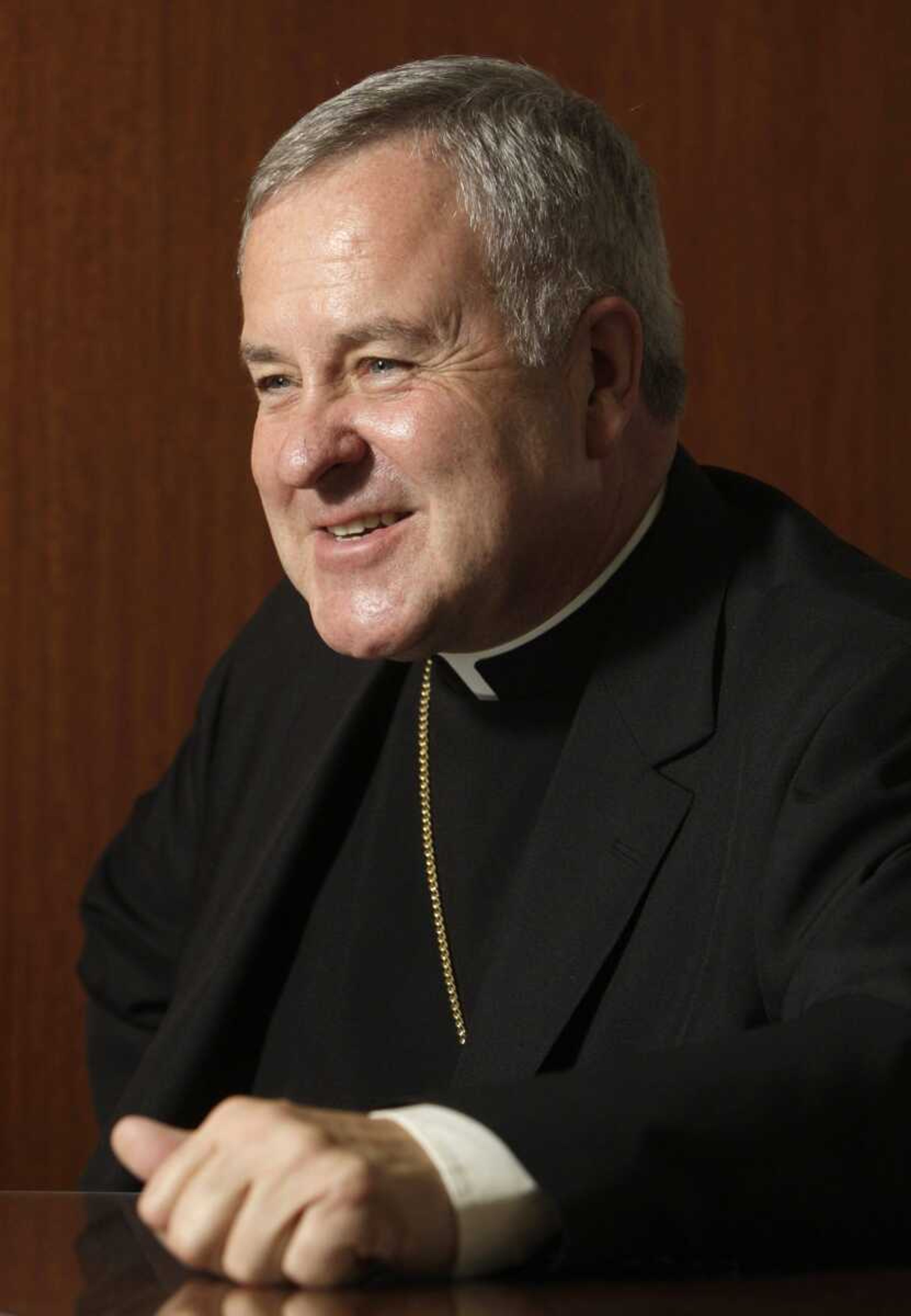St. Louis archbishop-elect prefers more low-key approach
ST. LOUIS -- St. Louis archbishop-elect Robert Carlson said Tuesday he often prefers to minister through private discussions rather than public pronouncements. But he also plans to speak out on moral issues and church teachings, even when unpopular...
ST. LOUIS -- St. Louis archbishop-elect Robert Carlson said Tuesday he often prefers to minister through private discussions rather than public pronouncements. But he also plans to speak out on moral issues and church teachings, even when unpopular.
"It really doesn't matter what the culture thinks or what the media thinks; that's my job," Carlson said a day before assuming leadership of St. Louis' Roman Catholic archdiocese and its roughly 500,000 members.
Carlson's predecessor, Archbishop Raymond Burke, knew that role well.
Burke, who was named last year as the first American to lead the Vatican supreme court, caused a stir in 2004 by saying he would deny Holy Communion to former presidential candidate John Kerry because of the Democrat supported abortion rights. In 2007, Burke indicated he would do the same for then-Republican front-runner Rudy Giuliani.
Carlson said Tuesday he believes private communication is crucial when ministering on issues such as whether someone should receive Holy Communion. He said he tries to help people understand why the church believes as it does.
"Whether a person is a politician, or a doctor, or a candlestick maker or a farmer -- whoever that person is -- and they come to me as their pastor, or I feel a need to go to them, what we do, we do in private," Carlson said.
Carlson, 64, most recently served as the bishop of the Saginaw, Mich., diocese. He was bishop in Sioux Falls, S.D., from 1994 to 2005.
Sister Mary Judith O'Brien, who is vice chancellor of the Saginaw diocese, said Carlson gathers a variety of opinions before making decisions.
"It seems to me Archbishop Carlson has a wonderful way of opening a dialogue," she said. "I have not known him to be a publicly confrontational person."
O'Brien praised Carlson's commitment to Catholic schools and to seeking out quality candidates for the priesthood. Carlson said he hopes to continue such work in St. Louis and also wants to institute "bishop's breakfasts."
The monthly breakfasts, begun in Saginaw by Carlson's predecessor, include everyone "from the public relations person at Dow Chemical to the fellow who owned the local car dealership," whether or not they were Catholic, Carlson said.
"If you're going to be a pastor, and if you've got the civic community doing their part and you've got the business community doing theirs, then the church -- if you will -- has to be the soul," he said.
One of the challenges facing Carlson in St. Louis is a long-running feud between the archdiocese and the Polish-American parish of St. Stanislaus Kostka, which has a tradition of self-governance in matters of property and assets dating back to the parish's founding in the 19th century.
The archdiocese and a small group of St. Stanislaus parishioners sued the parish last year, saying the archbishop should have the right to appoint the church's pastor and the board. The archdiocese claims St. Stanislaus would maintain control of assets and finances, but parishioners aren't certain that would be the case. The church's former pastor, Marek Bozek, was stripped of his priesthood earlier this year and a handful of lay church leaders have been excommunicated.
Carlson said he needs to learn more about St. Stanislaus before weighing in, but added he's willing to help if he can.
Connect with the Southeast Missourian Newsroom:
For corrections to this story or other insights for the editor, click here. To submit a letter to the editor, click here. To learn about the Southeast Missourian’s AI Policy, click here.










